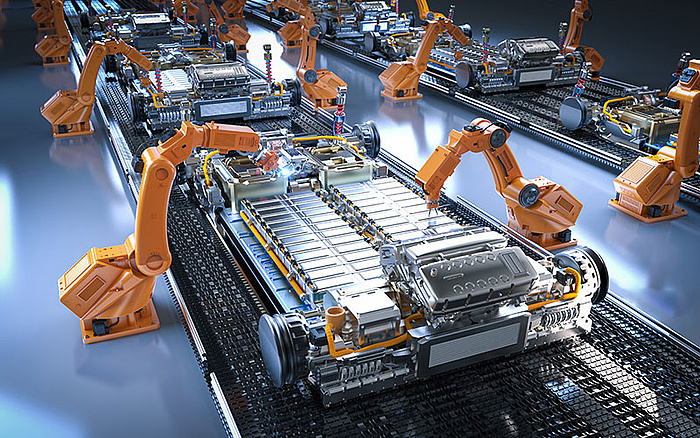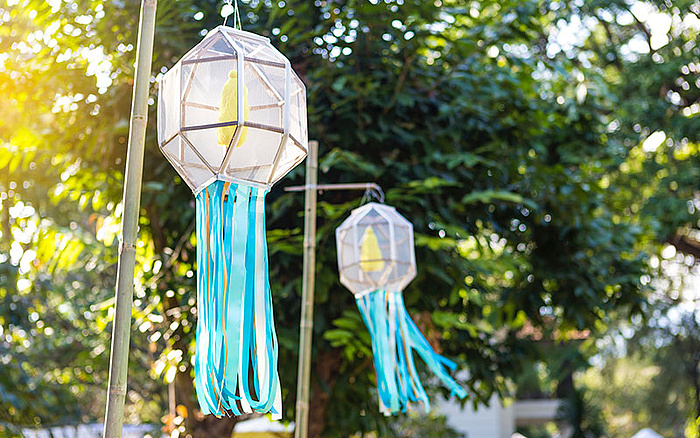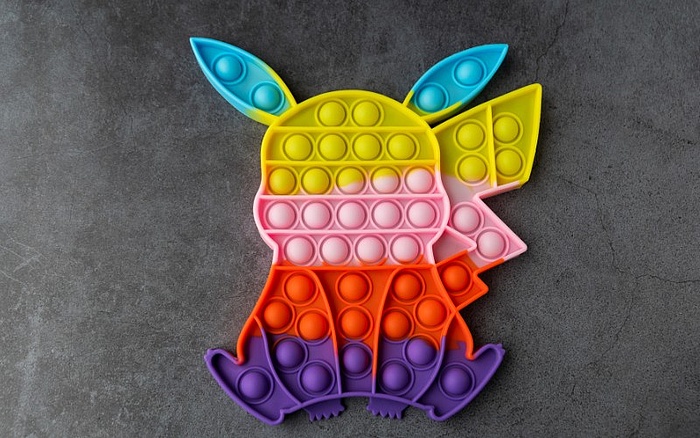
Shocking IP: electrons, exposés and energy blasts
The story of Intellectual Property (IP) is written where longevity meets change. This month's news summary from across the intangible world exemplifies how the enduring nature of IP rights does not mean the status quo is fixed and rigid.
We examine the way advanced materials are shifting the electric car revolution into a higher gear before reflecting on why trademark owners must be prepared to uphold their registrations at any time. Finally, a view into the wild lands of lookalikes reveals a kaleidoscope of competing assets, where the borders between permissibility and infringement become difficult to pin down.
When the going gets green, the green get going
One of the most pressing issues facing the electric vehicle (EV) industry is the difficulty of sourcing raw materials for lithium-ion batteries. According to United States Geological Survey statistics, global consumption of lithium shot up 41% in a single year, from 95,000 metric tons in 2021 to an estimated 134,000 tons in 2022. Not only did this cause a huge spike in lithium carbonate prices from around $35,000 USD to $67,000 USD per ton within 2022, but it also highlighted the relative insecurity of supply chains. Trade barriers, tariffs and attacks on shipping could all disrupt the production and uptake of EVs.
However, lithium carbonate is not the only resource carrying an at-risk factor. Cobalt and nickel, metals often used to make the cathodes of lithium-ion batteries, can come with substantial environmental and social costs. Child labor and a disregard for worker safety are the twin scourges of cobalt extraction, whether from mines or discarded batteries. One way to extirpate these inhumane practices is to find alternate materials for cathodes, thereby reducing cobalt demand to a level attractive only to reputable suppliers.

Despite recent volatility in the lithium market pushing up battery costs per kilowatt-hour in 2022, the overall trend from 2013 has been a pronounced reduction in the technology's price. In fact, according to research provider BloombergNEF, battery production currently outstrips global demand, with this disparity set to soar in the coming years.
Thankfully, one such replacement could be available soon. Researchers at the Massachusetts Institute of Technology (MIT) published a paper this month describing an organic cathode battery that could be produced more cheaply and charged faster than cobalt versions. Partially funded by Lamborghini, the technology could mitigate the negative impact of current manufacturing processes.
Instead of metals such as cobalt or nickel, layers of the organic compound bis-tetraaminobenzoquinone (TAQ) act as electron donors to allow the flow of current. What sets this compound apart from other organic cathodes is that it is insoluble in addition to being conductive. As Mircea Dincă, the study's senior author and W.M. Keck Professor of Energy at MIT, explained: "One of the main methods of degradation for organic materials is that they simply dissolve into the battery electrolyte and cross over to the other side of the battery, essentially creating a short circuit. If you make the material completely insoluble, that process doesn't happen, so we can go to over 2,000 charge cycles with minimal degradation."
A patent is pending for the novel electrode, and according to MIT's reporting, Lamborghini has already licensed the innovation. If the design proves capable of satisfying the requirements of high-performance sports cars without the price tag, we may see cobalt-free batteries powering everyday EVs sooner rather than later.
"It is already competitive with incumbent technologies," commented Mircea Dincă, "and it can save a lot of the cost and pain and environmental issues related to mining the metals that currently go into batteries."
A more ethical, efficient supply chain for batteries will deliver a much-needed boost to EVs, letting the emission-free concept truly hit the road.
For the LV of trademarks
A two-year trademark dispute between a small family-run business in the United Kingdom and the Louis Vuitton fashion house has ruled in favor of British couple Lawrence and Victoria Osborne. The luxury goods behemoth, estimated to have had a brand value of more than $47 billion USD in 2020, opposed the Osbornes' trademark registration for "LV Bespoke," claiming the possibility of a false association with its own products and the potential for damage to the distinctive character of its IP.
On January 16, the UK Intellectual Property Office (UK IPO) hearing officer delivered his decision that there was no likelihood of confusion between Louis Vuitton's earlier marks and the contested registration for handmade home and garden ornaments. In his extensive examination, Matthew Williams found the opposition failed on all grounds, namely, the likelihood of confusion, unfair advantage / detrimental effect and misrepresentation.

Handmade garden ornaments are a far cry from luxury handbags and other fashion items in the eyes of the UK IPO. All the same, prominent international brands are strongly obliged to pursue an active defense of their trademarks. Failing to do this could allow third parties to degrade the recognizability of crucial branding elements.
Louis Vuitton is able to appeal the decision but has not indicated any desire to do so. The UK IPO also awarded the Osbornes £4,000 toward the cost of defending their trademark registration, reported by the BBC to have been £15,000 in total. Compared to a civil suit, a tribunal hearing before the UK IPO or any other IP office is considerably less expensive and may be resolved more quickly. That said, the investment of time and resources can be burdensome, especially for individuals and small businesses.
Speaking to the British public broadcaster, Victoria Osborne described the personal and commercial impact facing a trademark opposition can have: "Over the past two years, we have had to put the handbrake on our business. It has been hugely challenging." She added, "It is not just the financial and emotional stress caused by this battle – we have had to put our business plan on hold as we were not aware if we would have to rebrand or not."
It would appear that no rebranding will be necessary, and the family business will be able to continue to build on an already distinguished reputation. Since setting up during the COVID-19 pandemic in 2020, the couple have produced metal crowns for the topiary lawns at King Charles' Sandringham Estate and exhibited at a live event of the popular television program "Gardeners' World."
No trademark can afford to rest on its laurels, even those that count royal botanicals among their patrons. That being so, a combination of legal know-how, steely determination and an eye for detail can make sure a unique trademark becomes a perennial fixture.
IP battles in the digital arena
The Pokémon franchise, owned by parent company Nintendo, is believed to be the most valuable media IP in history, estimated in 2021 to have generated a total revenue of $100 billion USD since 1996. Across playing cards, video games, cartoons and merchandise, its degree of pop-culture penetration has only been rivaled and never surpassed.
Though many would wish to emulate this success, doing so at the risk of a close resemblance seems foolhardy at best. Yet very little can be taken for granted in IP: Enter "Palworld" on January 19. As an open-world survival game, players must gather resources to craft virtual forts, stave off hunger and fight their peers. All these features are commonplace in the genre, but where titles like "Ark: Survival Evolved" and "DayZ" raise the stakes and gameplay offerings through dinosaurs and zombies, "Palworld" has fantasy creatures called "Pals" who just so happen to tote inordinate firepower.
Dubbed "Pokémon with guns" by internet users, the game has drawn expected levels of controversy, which may partly explain its runaway success. In the three days following its launch, the online multiplayer game sold an incredible five million copies. Meanwhile, tracker website Steamdb reported a peak of 1.3 million concurrent players, necessitating urgent action from the developer to handle the load.

The similarities between Pokémon and Pals are complicated by the fact many characters are based on plant and animal inspirations. Likewise, a particular art style on its own is not subject to copyright exclusivity. Thus, a superficially cut-and-dried case of infringement might have much more legal nuance than would appear at first glance.
While it could be said that Japanese developer Pocketpair has some gall to invite the ire of a media juggernaut, the fact the game was released at all was astonishing to some. In an interview with Game File, Don McGowan, former chief legal officer at The Pokémon Company, reflected that it "looks like the usual rip-off nonsense that I would see a thousand times a year […]. I'm just surprised it got this far."
Anticipating a backlash ahead of launch, Pocketpair CEO Takuro Mizobe made a statement to Automaton, guaranteeing his company's respect for IP. "We make our games very seriously, and we have absolutely no intention of infringing upon the Intellectual Property of other companies."
As of yet, Nintendo has not revealed what, if any, legal action it will be taking. A case of copyright infringement may be challenging for Nintendo to prove in major markets, owing to exceptions for parody and a need to demonstrate direct replication. Other avenues of attack, if warranted, could include arguing a deleterious effect on the distinctive character or repute of prior trademarks, passing off or a strong likelihood of confusion.
Whatever course of action the concerned parties decide to take, the explosive entrance of "Palworld" will almost certainly produce some IP fallout. What lies downwind, however, remains to be seen.
Filed in

Japanese video game companies clash over patents, Google comes under fire for trademark infringement and a German court sets AI copyright precedent.



